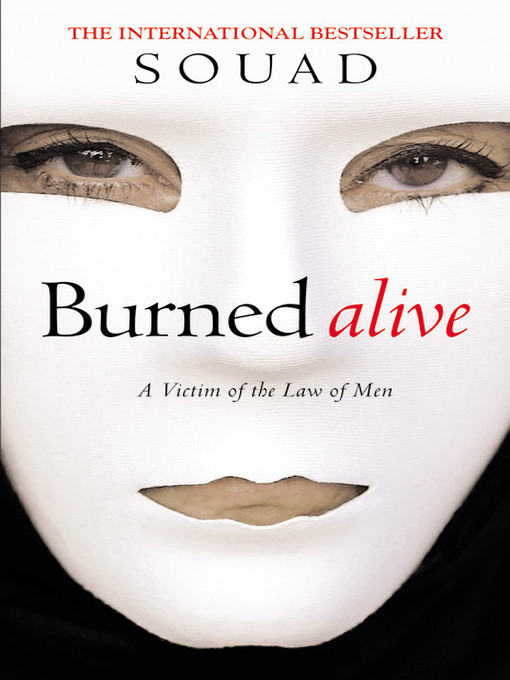
Burned Alive--A Victim of the Law of Men
A Sharon McCone Mystery Series, Book 25
کتاب های مرتبط
- اطلاعات
- نقد و بررسی
- دیدگاه کاربران
نقد و بررسی

May 1, 2004
The meaning of "women's rights" varies with nationality and culture. For Souad, who grew up in the late 1950s in a tiny, remote village in the "Palestinian Territory," it's an issue of life and death. When, as an unmarried girl, she became pregnant, she was sentenced to death by her immediate family, doused with gasoline and set on fire by her brother-in-law, and taken to a hospital to be neglected until she died. There, she was discovered by a humanitarian worker who managed to save her life by arranging her emigration, with her infant son, to Switzerland. As horrifying as this "honor crime" is, it's a logical, almost natural outgrowth of what Souad says is the standard treatment of girls and women in her closed world. Using starkly plain language, she vividly depicts a childhood of virtual slavery, in which she was illiterate, ignorant of anything beyond the confines of the village, working "harder than a beast of burden" and beaten daily. As Souad slowly healed and made a new life for herself in Europe, horrific images arose out of her jumbled memory: her mother smothering unwanted female babies at birth; her brother strangling her younger sister with a telephone cord for committing an unknown sin. Not so much a literary work as an expos of the brutal treatment of women still condoned in several parts of the world, this memoir, although painful to read, will be of urgent interest to anyone concerned with international human rights. Agent, Anna Jarota. (May 11) Forecast: This book was published in France last year and hit bestseller lists there. Ads in People and Time will alert American readers to its U.S. publication.

April 15, 2004
To kill a young woman for engaging in premarital sex, let alone just glancing at a man, seems unthinkable to most cultures today. Yet these murders, known as "honor killings," continue to happen in villages throughout the Middle East and parts of Asia. One woman who escaped such a horrific attempt on her life is Souad, a Palestinian woman now living in Europe, who writes under a pseudonym to protect her identity. In her heartbreaking memoir, she describes her difficult life, briefly alleviated by a love affair with a man who promised marriage. She got pregnant and shortly thereafter was abandoned. To cleanse the family's honor, her brother-in-law chose to kill her by dousing her with gasoline and setting her on fire. She was rescued and eventually brought to Europe by a humanitarian aid worker. While her body was being reconstructed from the burns, she also had to reconstruct her life, with a completely new language and customs. Unlike most women who have experienced her nightmarish situation, Souad's story has a happy ending. This moving memoir is an important document in helping to increase awareness of this taboo subject, as well as of the inhumane violations of women's rights in general. For all libraries.-Donna Marie Smith, Palm Beach Cty. Lib. Syst., FL
Copyright 2004 Library Journal, LLC Used with permission.

April 1, 2004
When she was 18, her brother-in-law poured gasoline on her and set her aflame. She was meant to die because she was pregnant and unmarried, bringing disgrace to her parents. But she survived, and now, 25 years later, "Souad" bears witness to the horror of "honor crimes" that kill thousands of women every year in many countries across the world. She begins with a bitter account of what it was like to grow up female in a remote Palestinian village in the Occupied Territory. "Being born a girl was a curse." Unlike her brother, she never went to school. Her father beat her daily. She worked as a shepherd, a "consenting slave." She barely glimpsed the city, where women were free to work and move around. Her rescuer was Jacqueline, a European aid worker, who was in the Middle East to care for children in distress and who arranged for the badly burned young woman to be flown to Switzerland, where she and her newborn baby received medical care and support. Today Souad is "somewhere in Europe," married with three children, her testimony still anonymous for her protection. Occasional chapters by Jacqueline fill in the wider context, but it's the immediacy of the shocking first-person narrative that drives home the statistics. Like Mende Nazer's " Slave" [BKL D 1 03], this book is a call to action.(Reprinted with permission of Booklist, copyright 2004, American Library Association.)

























دیدگاه کاربران